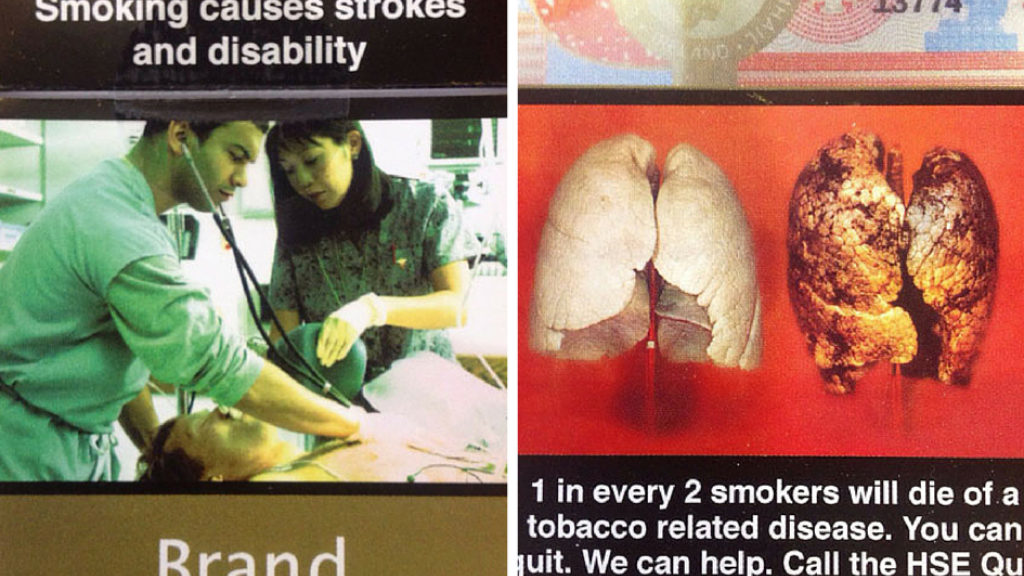
More supports required for smokers to quit
Today, on World No Tobacco Day, the Irish Cancer Society is today calling for the next steps towards the Government’s target of a tobacco-free Ireland by 2025 to be taken.
[[{"type":"media","view_mode":"media_preview","fid":"5714","attributes":{"alt":"","class":"media-image","height":"180","style":"line-height: 1.4; width: 180px; height: 180px; float: right; margin: 1px;","width":"180"}}]]
The theme of today’s World No Tobacco Day is plain packaging. The Society has pressed both Government and opposition parties to prioritise its introduction, but is asking for increased quit supports for smokers to go hand-in-hand with tobacco control measures.
Donal Buggy, Head of Services and Advocacy at the Irish Cancer Society said: “We hope to see plain packs on the shelves in the coming months and the Irish Cancer Society will do all in its power to make this a reality, but we also need to look at the next steps in reducing tobacco consumption. To this end, we have to make it easier for people to quit smoking and to increase the availability of supports for existing smokers.”
Nearly two in three smokers want to quit. Despite the great success of the National Smokers’ Quitline, set up by the Irish Cancer Society in 1999, and now operated by the HSE, according to the latest Healthy Ireland survey, only a small minority seek the advice or help of dedicated quit services.
Mr. Buggy said: “Innovative and progressive thinking on smoking cessation is required over the coming years. While we cannot discount the importance of measures like plain packaging in educating smokers and making the healthy choice an easier one, many smokers require extra support to break the habit once and for all.”
“Investing in smoking cessation services is one of the most cost-effective ways of improving the nation’s health. But these need to be properly targeted.”
To support existing smokers, and to achieve the goal of a Tobacco Free Ireland by 2025, the Irish Cancer Society is calling for:
- increased Government investment in existing quit supports
- greater availability of nicotine replacement therapy and;
- continued and improved training for healthcare workers to deliver smoking cessation and targeted information campaigns
- tailored, community-based support programmes
The Irish Cancer Society currently operates a community-based support programme, We Can Quit, which encourages women in disadvantaged areas to quit smoking. Women in lower socioeconomic groups have the highest rate of smoking in Ireland and are more likely to get lung, head and neck cancers.
Mr. Buggy said: “We Can Quit empowers women to take control of their smoking by offering them supportive space to understand their addiction, build confidence to quit, and to share experiences from each other. We provide smokers with group and one-to-one support from trained community facilitators as well as access to free nicotine replacement therapies (NRT), through their local pharmacy. The challenge now is to target quit services in areas where smoking rates are highest.”
Plain packaging
Speaking on the delay in introducing plain packaging, Mr. Buggy said: “We hope to see the legislation needed to introduce plain packaging brought into force before the Dáil rises in July, and are continuing to push TDs from all sides to prioritise this. Plain packaging will go some way to encouraging people to quit, discouraging others from starting and denormalising smoking.”
Ireland was only the second country in the world, after Australia, to make plain packaging the law, but its introduction was delayed due to the long period of Government formation.
Mr. Buggy said: “We need to follow the example of Australia, where plain packaging has helped reduced smoking rates to their lowest ever level.”
In the two years following the introduction of plain packaging, smoking rates fell to an historic low of 12.8%. This is down from 15.1% two years before its introduction. In Ireland, the smoking rate currently stands at 19.5%.
Evidence from Australia shows that people perceived plain packs to be of lower quality, found smoking less satisfying than before the introduction of plain packaging, thought more about quitting and made quitting a higher priority.
Mr. Buggy said: “What this evidence shows is that plain packaging has been a vital tool in Australia in encouraging people to quit, and if the right supports are put in place for those who want to quit, we can significantly lower smoking rates.”
The Irish Cancer Society’s own research indicates that almost four in five Irish people support the introduction of plain packaging of tobacco products, which include graphic health warnings that have to cover 65% of the new packs, with the name of cigarette brand as the only differentiating feature.
Read more about the Irish Cancer Society's plain packaging campaign
